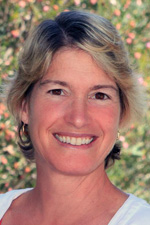The Spoon from Minkowitz: A Bittersweet Roots Journey to Ancestral Lands; ISBN-13: 9780988401938; 256 pages
By Eva Trieger

ENCINITAS, California — It wasn’t just the elegant lunch of quiche, salmon, and fresh fruit that brought residents and guests into the Ellen & Ingram Chodorow Synagogue at Seacrest Village, though the buffet was enticing and the atmosphere approached party status. No, the focus was on the petite blonde, animated New Yorker, Judith Fein. Fein is a travel writer that San Diego’s Jewish Book Fair had the good fortune to engage for the afternoon session of gobbling and gossiping. The author bubbled over with wit, warmth, humor and orts more tempting than your Bubbie’s rugelach.
Fein’s latest book The Spoon from Minkowitz , traces Fein’s own family history, and provided the fodder for her talk. This travel writer has over 100 publications, is a screen writer and playwright. This vibrant, slightly irreverant sprite disclosed she’d been writing since the age of six.
By age ten, Fein reported that she “became obsessed” with her grandmother’s shtetl, Minkowitz, an obscure Russian enclave. Though her family was loathe to discuss it, Fein continued to interrogate her parents and Bubbe, regularly, about the community her grandma had left before arriving in America in 1910. When Judith asked her grandmother where she had come from she was given the response, “far.” Not very satisfying for this ancestral sleuth! It seemed to the inquisitive author that everyone was holding out on her. Her grandmother only gave her “six paltry facts.”
Fein, obviously a persistent little girl, would telephone her Bubbe and speak to her in her own brand of Yiddish. Naturally, her grandmother didn’t understand this brand of ig-pay atin-lay, and so, Fein told us, she would reply, “I don’t understand your iddishe!” The author told us that she “felt like a prosecuting attorney who couldn’t get the witness to cooperate.”
Ever on the lookout for clues that would deliver her to Minkowitz, Fein traveled, and kept and ear and eye out for anyone who might have information about this nearly forgotten burg. Once, on a train back to Switzerland, she thought she met a compatriot. Thinking she was closing in on a valuable clue, a Jewish passenger said to her, “Etes-vous de nous?” Are you one of us? Sadly, he exited the train before she could garner further information about Minkowitz.
Judith met her husband-to-be, an actor at the time, and after a few dates, was invited to meet his family. During this meeting, she asked where her future in-laws came from…and as luck and Jewish geography would have it, her soon to be father-in-law said, “Minkowitz.” Later, as a wedding gift, he presented Fein with a spoon, reportedly from the shtetl. She kvelled, thinking that she had hit pay dirt and met her beshert!
Fein and her husband made plans to travel to Minkowitz. Judith revealed that she was afraid of what, “I would find, and what I wouldn’t find.” However, she felt an obligation to go and walk the land, breathe the air and eat the food for others, specifically to experience it for the people who were no longer alive or had no access to the forgotten village.
She learned that Minkowitz was actually in the Ukraine, not in Russia as she’d believed, and that it was a poor little shtetl. One local resident told her, “Ve had von chicken. It vas de entertainment, and ven ve got hungry, ve ate de entertainment.”
The Spoon from Minkowitz is but one story of the European Jewish experience. Five million Jews were subjected to pogroms, oppression, and conscription into the Czar’s army. Few were spared. Fein’s novel delivers a personal story, but also a universal one that Jews in every corner of the world can relate to and share. And if you don’t know your Bubbe’s recipe for potato kugel, maybe you can take a page from Fein’s book and get creative! After all, who’s going to tell your Bubbe on you?
*
Trieger is a freelance writer specializing in the arts and literature. She may be contacted via eva.trieger@sdjewishworld.com